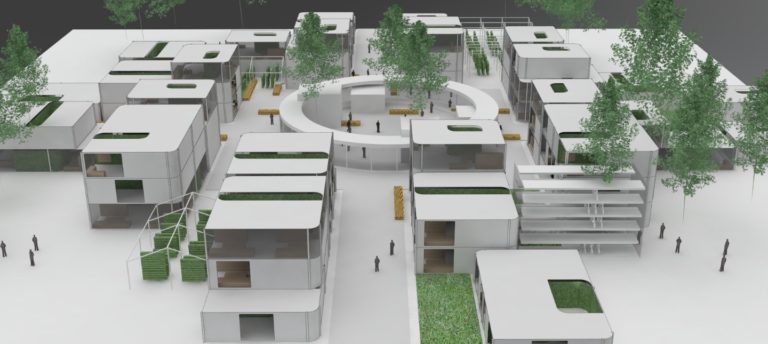In the city of Helmond in Brabant, a district will be built full of sensors. These sensors collect a great deal of data and are intended to generate income in this way. For residents, there will be a discount on their rent in exchange. The discount increases as they share more data.
According to Tweakers, the experiment will take place in the Brandevoort II district, where 1,500 homes will be located. Numerous sensors enable the Municipality of Helmond to collect a great deal of data. These include the use of the streets and sidewalks, but also the health of the users. For companies there are commercial applications in the private domain of the residents.
Measure a lot
In Brandevoort II, sensors will be installed at various locations. The UNStudio architectural office intends to place them at least on lampposts and in the sewage system. The agency also wants to organise an experiment in which there are sensors in a hundred homes, called the Living Labs.
The sensors on the lampposts must collect information about the noise in Brandevoort II, but also about movement and air quality. The sensors follow smartphones in the neighbourhood, so that street lights automatically switch on when someone is nearby, and map out where exactly people are walking.
But there will be more sensors; from the sewerage system, for example, sensors will analyse the health of the neighbourhood. This should not only lead to conclusions about all the residents of Brandevoort II, but also to certain conclusions about individuals. And if a resident lives in one of the Living Labs, he or she gets a discount on his or her rent. The actual discount depends on the amount of data shared.
Whether the latter can actually be achieved remains to be seen. Architectenbureau UNStudio only has a number of letters of intent from companies that are willing to pay for this data. Finally, within the neighbourhood, companies should be given the opportunity to test new systems so that they can improve existing neighbourhoods. According to the current plan, Brandevoort II should be realised in the course of 2028.
This news article was automatically translated from Dutch to give Techzine.eu a head start. All news articles after September 1, 2019 are written in native English and NOT translated. All our background stories are written in native English as well. For more information read our launch article.